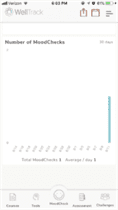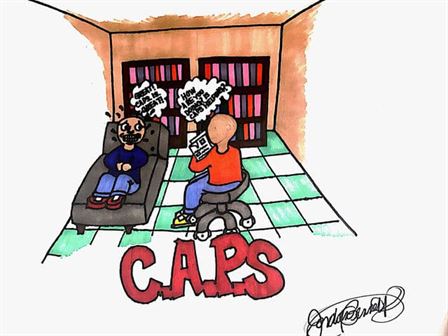Days come and go here at Montclair State University, but it seems like the stress and worry never go away when it comes to classes. Sometimes it feels like there is no way to get past the week, and you feel like no one can help.
However, the university has a program implemented for students who may need counseling in order to assist them in any way. But are students aware of Counseling and Psychological Services (CAPS) existing on campus?
For those who are not aware of CAPS, the department is also known as the University Health and Counseling Services and is located in Edward Russ Hall. They provide free psychological services, counseling, psychiatry services, screenings and therapy sessions. The overall mission statement for CAPS is to provide any assistance to make students’ experience at Montclair State the best.
But the question arises: what happens when there is no one to assist you? What happens when no one is available, not even your counselor that you visit at CAPS? Luckily for all students at Montclair State, CAPS provides a solution for students that do not have anyone around, and that is the Let’s Talk program. The program was implemented to provide one-on-one counseling for those who cannot meet with their usual counselor or are unsure if they need counseling.
However, students can also become uncomfortable with Let’s Talk. Talking to someone completely new is hard for those that have a difficult time opening up to others. It already is hard enough to go up to someone and tell them how you truly feel.

A screenshot of the app WellTrack, where students can track their mood. Photo credit: Sunah Choudhry
If a student is not comfortable with the program, there is always WellTrack, which is an application that can be downloaded to your phone. The program allows students to have a home service for those who can not make it to their appointments or Let’s Talk.
“Students have used WellTrack, and we have received both positive and negative feedback,” said Montclair State CAPS’ Instagram in a direct message.
WellTrack also includes guided therapy for stress, anxiety and depression. The app also provides mood checks to compare your mood throughout the days, weeks and months.
Another problem with Let’s Talk is that it has selective times, which makes it difficult for those who are seeking counseling. Based off of the CAPS website, Let’s Talk is only available for a few hours at a time each day. On Thursdays, the program is running from 1 p.m. to 2:30 p.m. and 3:30 p.m. to 5 p.m.
As a student, it is difficult to even make enough time to eat a meal in between classes, let alone set apart an hour when they are not guaranteed a session. The timing seems unrealistic for students.
On the other hand, WellTrack is available 24/7. The only problem with WellTrack is that there is no human interaction whatsoever. It is a connection between the phone and the person who needs help. A phone does not identify human emotions and an app cannot dissect a person’s problems piece by piece like a licensed counselor can.
Students from different campuses tweet their frustration on Twitter, regarding mental illness and how it is dealt with in college:
https://twitter.com/gunass420/status/1038616163075256320
https://twitter.com/samowitzzz/status/1039607661380227072
https://twitter.com/princessshaayy/status/1039631815655542785
My 68-year old grandmother took her own life when I was in college. Years later, I would attempt myself. Ask people if they are ok, if they have suicidal thoughts, listen. You can save a life. We need more #Mentalhealth support and education #NationalSuicidePreventionDay
— Senta Scarborough (@sentascar) September 11, 2018
For the most part, CAPS provides programs that help students, but it does not cover all of the bases. As students who are putting down a huge chunk of money for an education, there should be more accessible resources for mental health.



